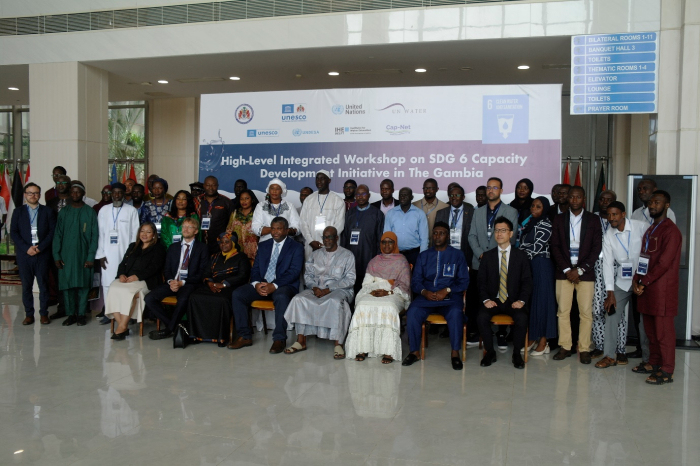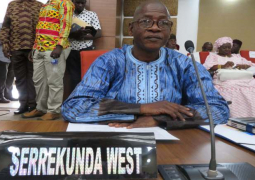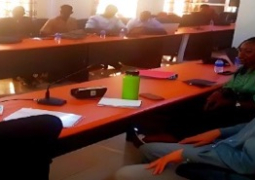
The workshop, held at the Sir Dawda Kairaba Jawara International Conference Centre in Bijilo, was aimed at enhancing national capacity to achieve Sustainable Development Goal 6: Clean Water and Sanitation for All.
In his keynote address, Hon Musa S. Drammeh, minister for Fisheries, Water Resources, and National Assembly Matters, stressed the significance of water as a critical resource.
“Water is a resource so essential that nature has generously blessed us with it,” he stated, while expressing gratitude to UN DESA, UNESCO, and other partners for supporting the initiative.
He noted that the workshop comes at a crucial time as The Gambia continues its efforts to improve water management and sanitation services. The primary aim, he said, is to ensure universal access to safe and clean water and adequate sanitation facilities.
Despite progress in expanding access, the minister acknowledged persistent challenges, particularly in water quality, safe toilets, and hand-washing facilities. He highlighted the ongoing health and environmental implications of these gaps and the need for stronger institutions, better coordination, and increased funding.
“Limited funding and human capacity remain significant obstacles. We need more resources and stronger systems to deliver on our commitments,” he declared.
He underscored The Gambia’s growing cooperation with neighboring countries on shared water resources, including participation in regional initiatives like the Senegal-Mauritania aquifer basin and the country’s membership in two UN water conventions.
“We must act boldly as population growth, climate change, and pollution continue to exert pressure. It’s not just about infrastructure, it’s also about strengthening institutions, training our people, and securing the necessary funding.”
Dr. Ahmadou Lamin Samateh, minister for Health, also addressed the gathering, describing the workshop as a timely platform to harmonise national and international efforts toward achieving the SDG 6 targets.
As custodian of national sanitation and hygiene policies, Dr. Samateh reaffirmed his ministry's commitment to accelerating progress and achieving the targets set by the 2030 Agenda for Sustainable Development.
“This workshop clearly demonstrates our collective commitment to universal access to safe water and adequate sanitation,” he said, commending the workshop organisers for tailoring the agenda to Gambia’s specific needs.
He highlighted successful initiatives, including the Watch Programme, implemented by the Ministry of Health in collaboration with UNICEF, which has seen the construction of hundreds of sanitation facilities nationwide. However, he stressed the importance of ensuring continued investment and collaboration to achieve the country’s goal of ending open defecation.
“We are close to achieving open defecation-free status, but the last mile is often the hardest. Partners must work together to provide the infrastructure and support to reach this goal.”
Other key speakers at the opening included Honourable Dr. Habibatou Drammeh, minister for Basic and Secondary Education and Board Chairperson of the Gambia National Commission for UNESCO; and Mr. Karl-Frederick Paul, United Nations Resident Coordinator in The Gambia.
The workshop is structured to outline specific goals, expected outcomes, and strategic frameworks for building capacity at all levels of water governance and service delivery. It highlights the importance of collaboration among national institutions and international partners to meet the SDG 6 targets sustainably.
Read Other Articles In Headlines




